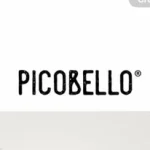FAQs
What is a soap?
Well believe it or not a true soap is a type of salt. Most people think of table salt but chemically speaking a salt is an ionic compound formed from the neutralisation reactions of an acid and a base. The origins of soap can be traced back over 5000 years when the first recipe was discovered. In those days, soap was made by heating fatty substances together with an alkali such as ash .The production methods haven’t changed dramatically but now we use vegetable fats and different alkalis, as well as adding natural oils to scent our soaps for an extra dimension.
Is each of your soaps the same?
No two soaps will be exactly the same, but that’s what makes them special. The shape, weight and colour of each soap bar may vary from batch to batch as all soaps are handmade. Each bar may be ever so slightly different, but still delivers the same benefits. You may also find some a powder-like substance on your soap which is completely harmless and will disappear during its first use.
How long does it take to make your soaps?
Each bar takes six to eight weeks to cure, which may affect the lead-time of some of our soaps. If your soap is out of stock, please bear with us while we make some more for you. We only hold small batches to ensure your soaps are as fresh as possible.
How should I store my soap?
Picobello soaps are naturally high in glycerine and are prone to melting if left in a puddle of water. In order to ensure a long lasting bar, please keep your soap out of water in between uses. I recommend a slatted soap dish, resting your soap on the bristles of a brush or a coconut fibre pad.
Can I wash my hair with our soaps?
Yes, all of our soaps can be used as a shampoo bar with several ideally suited to washing short hair. Some of our bars also contain essential oils known to stimulate hair growth.
Are the soaps cruelty-free?
Our soaps are 100% cruelty-free and free from palm oil and free from animal fats (like tallow or lard)
What is sodium lactate and is it really vegan?
Sodium lactate is the sodium salt of lactic acid. It acts as a soap preservative and is an extremely effective humectant, helping to strengthen the skin moisture barrier. The sodium lactate I use is specifically derived from the natural fermentation of sugars found in corn and beetroot and has been certified vegan. Despite the similarity in name, sodium lactate is not chemically similar to lactose (milk sugar).
What if I have allergies?
Please read our list of ingredients on our packaging thoroughly if you have allergies. If you are in doubt, just drop me an email before purchasing for a list of ingredients, and if you experience any irritation or discomfort when using the soap, please stop use straight away.
Introducing Picobello Oils
Handmade in Yorkshire, these oils are based on my personal experience of treating my own skin. Formulated in such a way that they protect, restore and balance your skin metabolism throughout the day and night, they also help to reduce trans-epidermal water loss, nourishing the skin while helping to retain natural moisture.
The range is suitable for all skin types and is made from high quality plant oils with no artificial ingredients or preservatives. Available for both the face and body, these oils help maintain the natural skin barrier, aid cell renewal and repair damaged skin by supporting the restoration of collagen and elastin. Essential oils such as lavender, palmarosa and rose geranium give a perfume to the oils but are also selected to benefit all skin types and conditions.
In order to protect the oils from deterioration through sunlight, each oil comes in a recyclable aluminium bottle which is also safer to handle in the bathroom. You may sometimes notice a distinct colour and odour to the oils, which occurs as a result of using unrefined and cold pressed vegetable oils.
Introducing Picobello Deodorants
Following my principle that ‘less is more’, I set out to develop a deodorant for men and women that is free from synthetic fragrances, preservatives, aluminium salts and other harsh chemicals. Stored in recyclable aluminium tin, these all-natural deodorants are kinder to skin and the environment. Made from babassu oil, a lightweight, odourless alternative to coconut oil, arrowroot powder, a natural alternative to talcum powder that absorbs moisture and eliminates toxins, bicarbonate of soda which deodorises by altering the acid PH of the underarm skin, and kaolin clay, a naturally occurring mineral clay traditionally used in skin care to absorb excess moisture.
How does the deodorant work?
The range has been developed to keep body odour at bay by suppressing bacterial growth which causes body odour. It doesn’t act as an antiperspirant that stops you from sweating which is, after all, a healthy bodily function that gets rid of toxins and regulates your body temperature.
If you have never used a natural deodorant before your armpits may take a few weeks to adjust. Some people can react to bicarbonate of soda by developing a mild itchy rash. If that happens, discontinue and switch to my formulation for sensitive skin (contains kaolin instead of bicarbonate of soda).
How do I apply the paste?
Take a small amount and warm it between your fingers, then simply massage into your armpit. Picobello deodorant paste is slightly powdery and flaky at room temperature, making it easy to apply.
How do I store the deodorant?
Keep it in a cool dark place. In warm weather, it can be stored in the fridge, just bring to room temperature before use. Don’t worry if it melts, its effectiveness will not be affected.
Is the deodorant vegan?
Yes it is vegan and has never been tested on animals.


